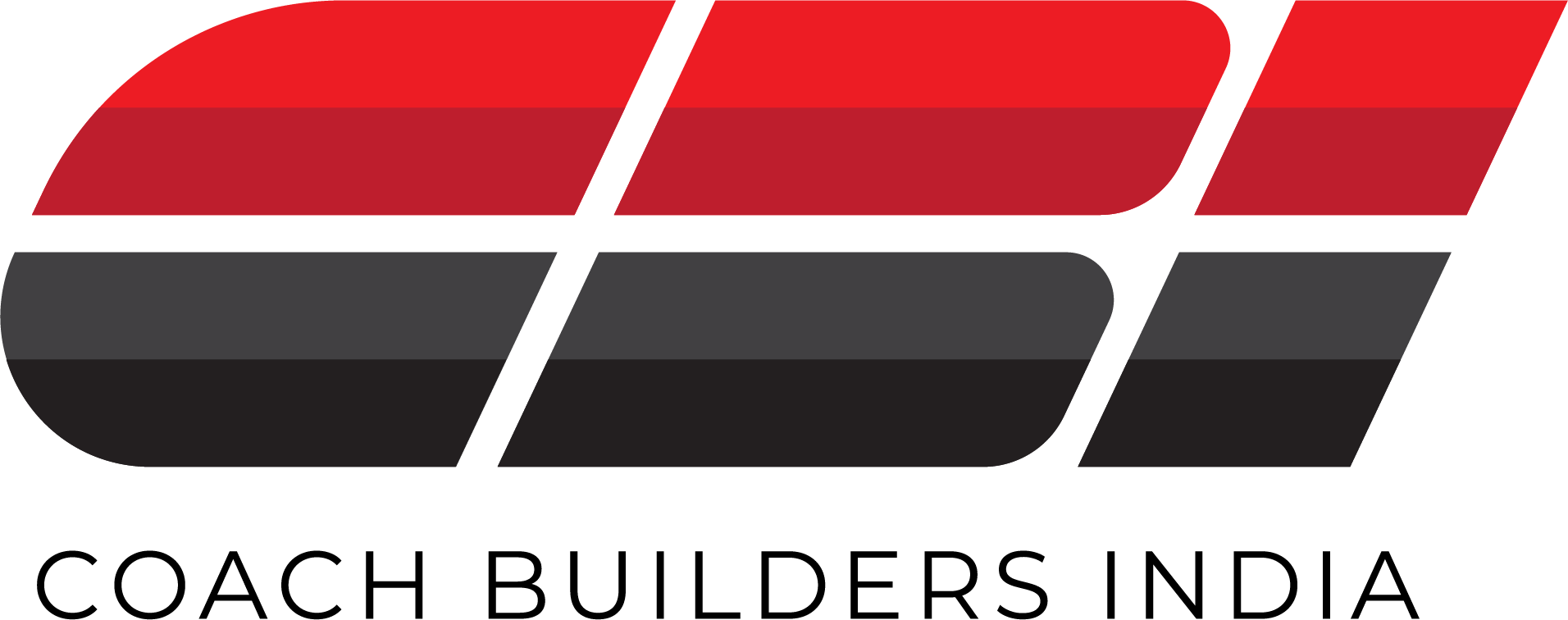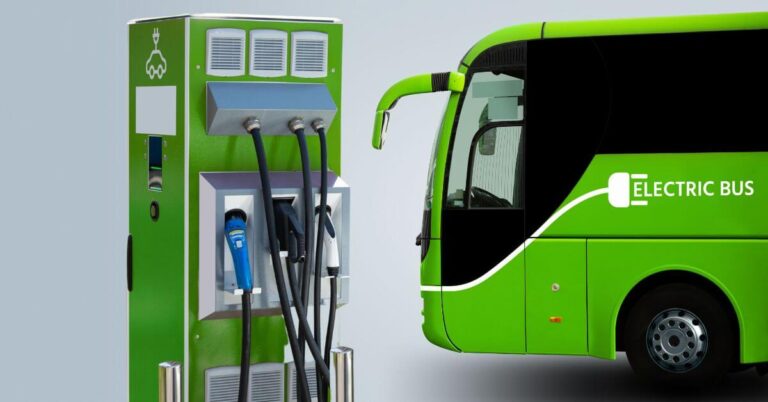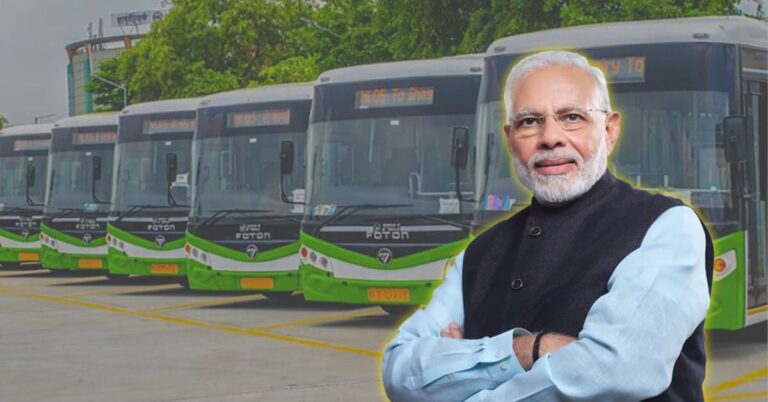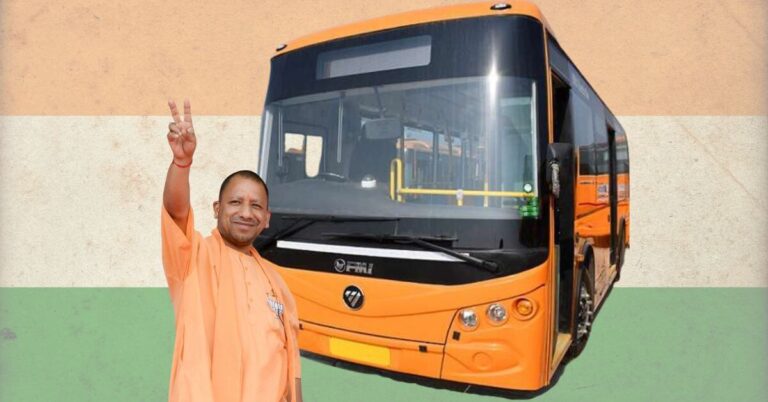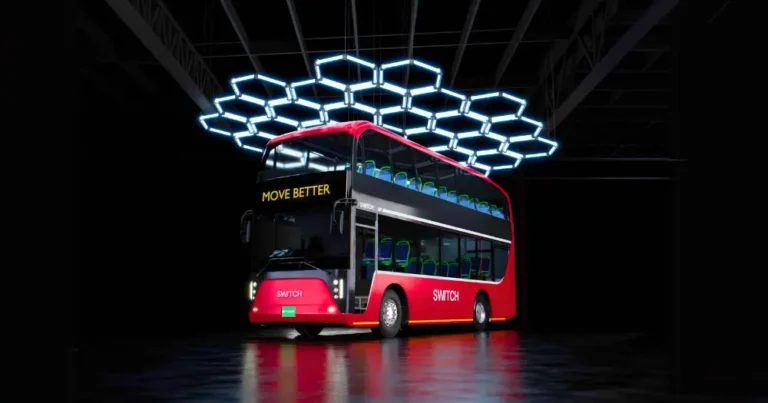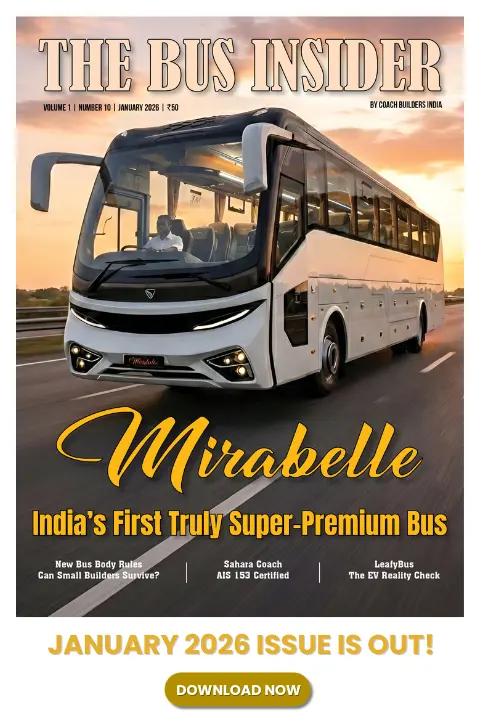Govt Approves 9,800 E-Buses for Bengaluru, Hyderabad Under PM E-Drive Scheme
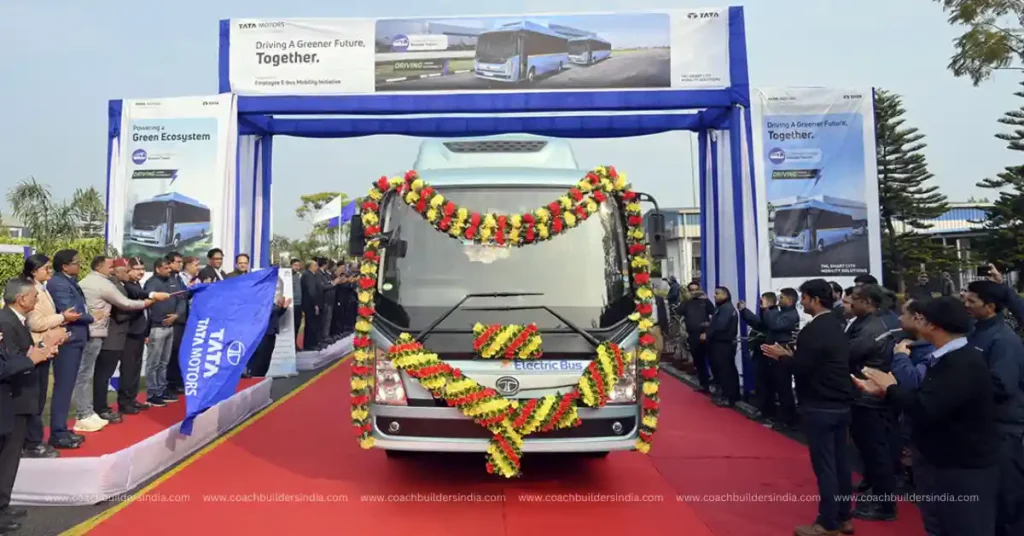
The Ministry of Heavy Industries (MHI) has approved subsidies for 9,800 e-buses for Bengaluru and Hyderabad under PM E-Drive Scheme, marking a significant step in India’s electric mobility journey.
Bengaluru will receive 7,000 e-buses, while Hyderabad gets 2,800 under the ₹10,900-crore PM E-Drive Scheme. This move aligns with the government’s broader objective to promote clean and efficient public transport systems across the country.
This approval covers approximately 70% of the target to subsidize 14,028 e-buses in nine metro cities by FY26. The e-bus subsidy component of the scheme has been allocated ₹4,391 crore, which constitutes 40% of the total budget.
Also Read: PMI Electro Mobility Secures ₹250 Crore Investment To Drive EV Growth
PM E-Drive Scheme: City-Wise E-Bus Allocation
The scheme operates in tandem with the ePSM (e-Bus Payment Security Mechanism) to streamline payments and protect the interests of manufacturers.
States need to submit a Direct Debit Mandate (DDM) to the Reserve Bank of India (RBI), authorizing automatic payment deductions if dues remain unpaid for over 90 days. This ensures timely payments and financial security for electric bus manufacturers.
Key Highlights of the E-Bus Rollout
- Total Scheme Outlay: ₹10,900 crore
- Subsidy Allocation for E-Buses: ₹4,391 crore
- Targeted E-Buses: 14,028 across 9 cities by FY26
- Subsidy per E-Bus: ₹20-35 lakh
- Major Beneficiaries: Bengaluru and Hyderabad (so far)
City-Wise E-Bus Allocation (Approved So Far)
| City | E-Buses Approved | Subsidy per Bus (₹ Lakhs) |
|---|---|---|
| Bengaluru | 7,000 | ₹20–35 |
| Hyderabad | 2,800 | ₹20–35 |
| Other Cities | Awaiting Demand Certificates | ₹20–35 |
The subsidy per bus ranges between ₹20 lakh and ₹35 lakh, depending on the specifications and requirements of the vehicles.
Challenges in Electric Bus Adoption
While the approval of nearly 10,000 e-buses is a significant milestone, industry experts highlight potential challenges that could impact the scheme’s success:
- Battery Supply Constraints: India relies heavily on China for lithium-ion batteries, especially for larger batteries required in buses compared to smaller EVs.
- Skilled Manpower Shortage: Drivers and maintenance personnel need specialized training to operate and service e-buses equipped with advanced technology.
- Infrastructure Readiness: Expanding charging infrastructure and maintenance hubs across cities is crucial to ensure smooth operations.
Need for Enhanced Public Transport Access
India’s urban public transport infrastructure lags behind global counterparts. As per the Economic Survey:
- Only 37% of urban residents in India have easy access to public transport, compared to over 50% in Brazil and China.
- Investing in public transport and reducing reliance on private vehicles is crucial for India’s net-zero carbon emissions goals
Also Read: 347 Electric Buses for Punjab Sanctioned Under PM e-Bus Seva
What’s Next?
The government is awaiting demand certificates from other cities like Delhi, Mumbai, Pune, Ahmedabad, Surat, Kolkata, and Chennai. Once these are received, more approvals are expected.
The success of the PM E-Drive Scheme is critical for India’s urban transport transformation, helping the country move closer to its net-zero carbon goals while enhancing public transport efficiency in metro cities.
Catch the latest Bus Industry updates, Exclusive Interviews, Bus News, and International Bus News on Coach Builders India. Download the latest issue of the The Bus Insider magazine for more insights.
